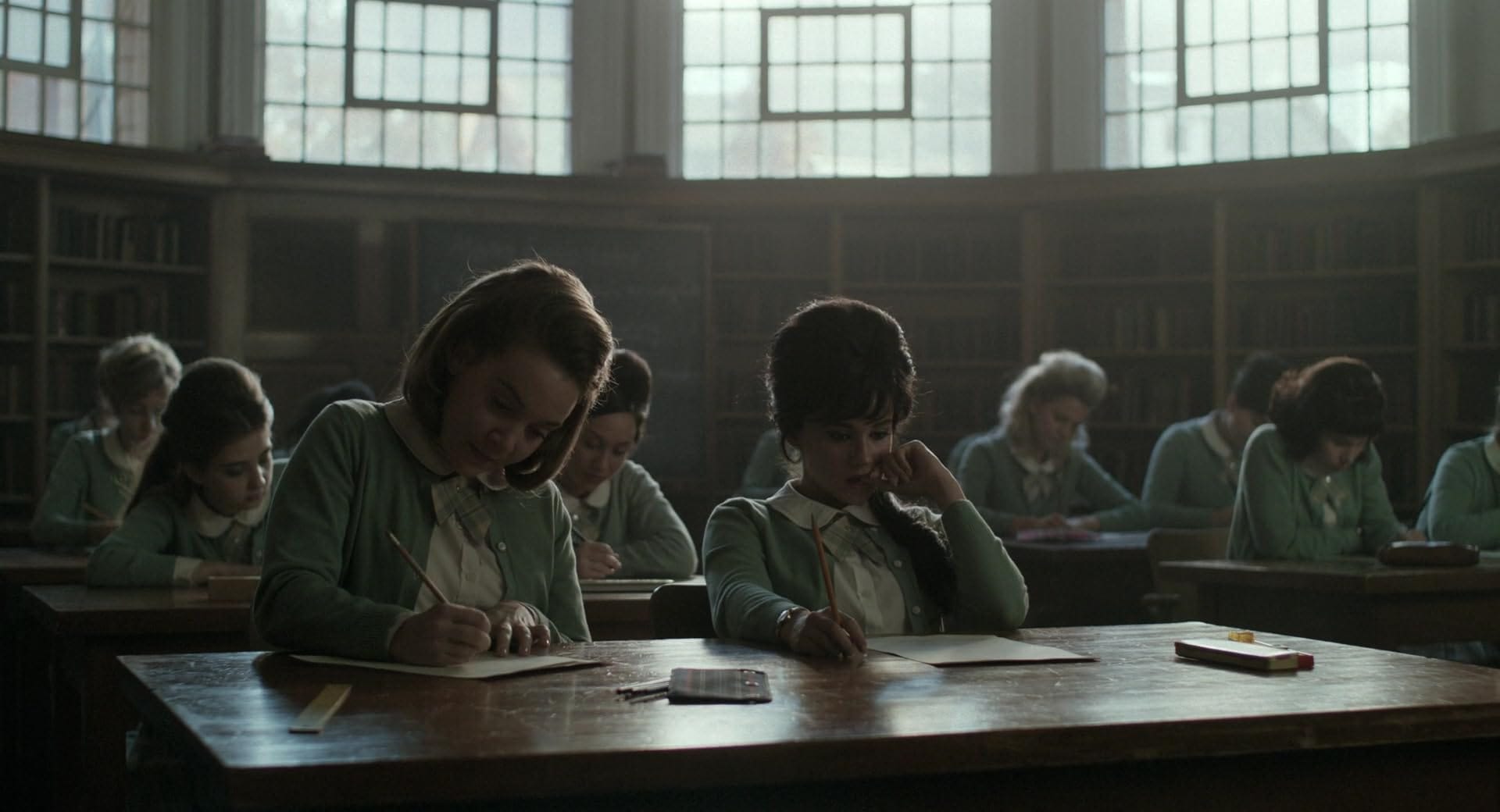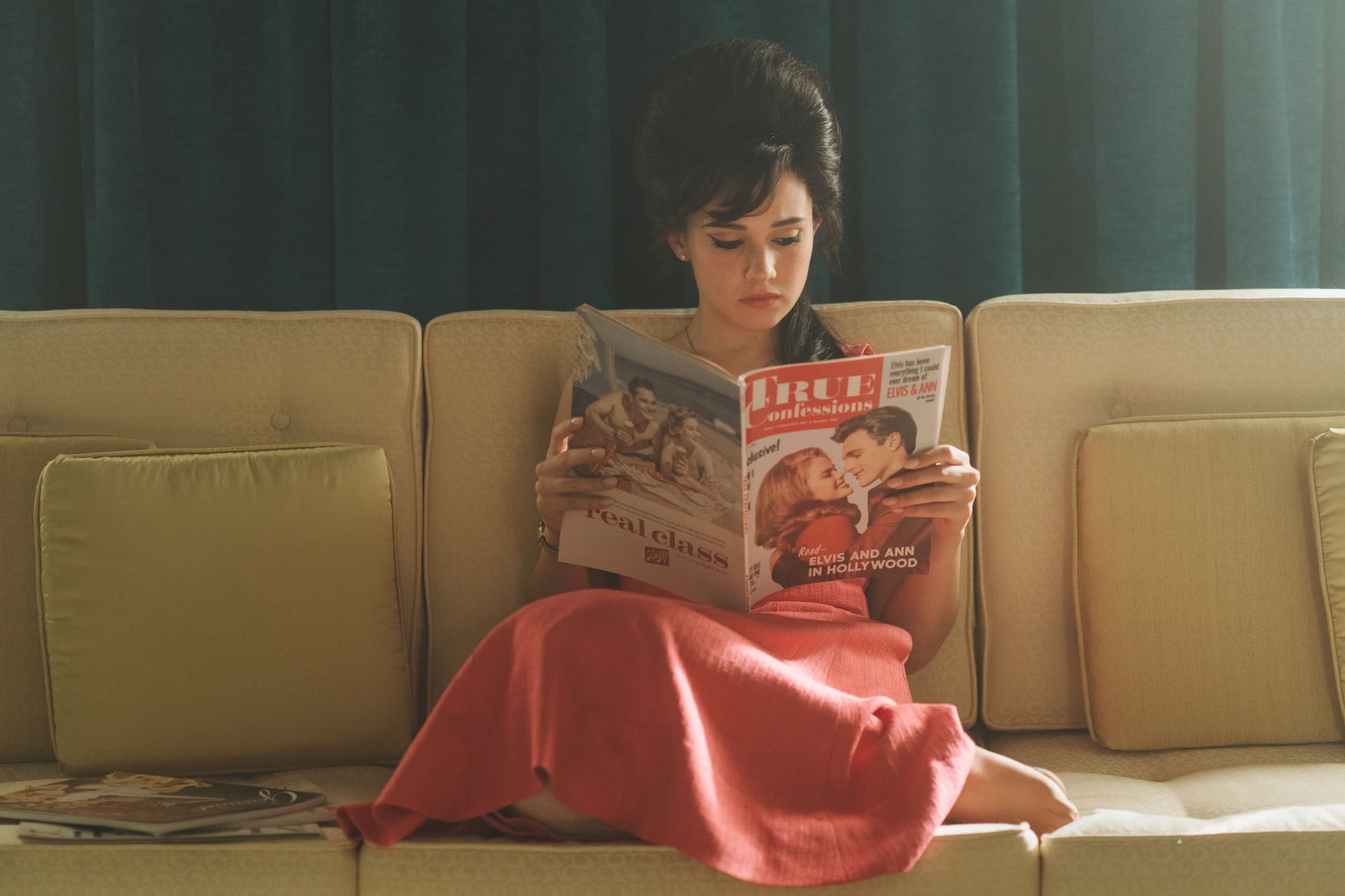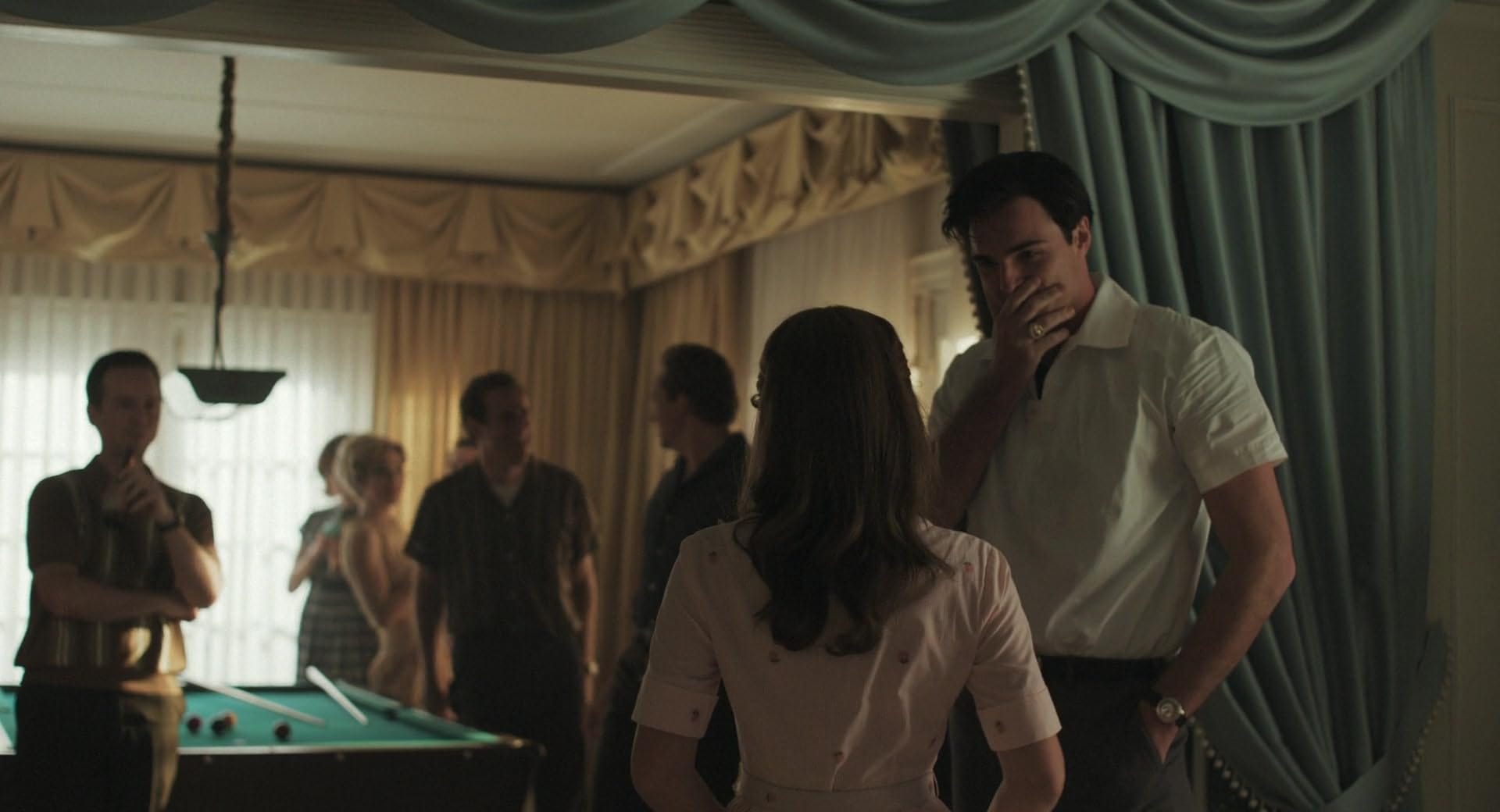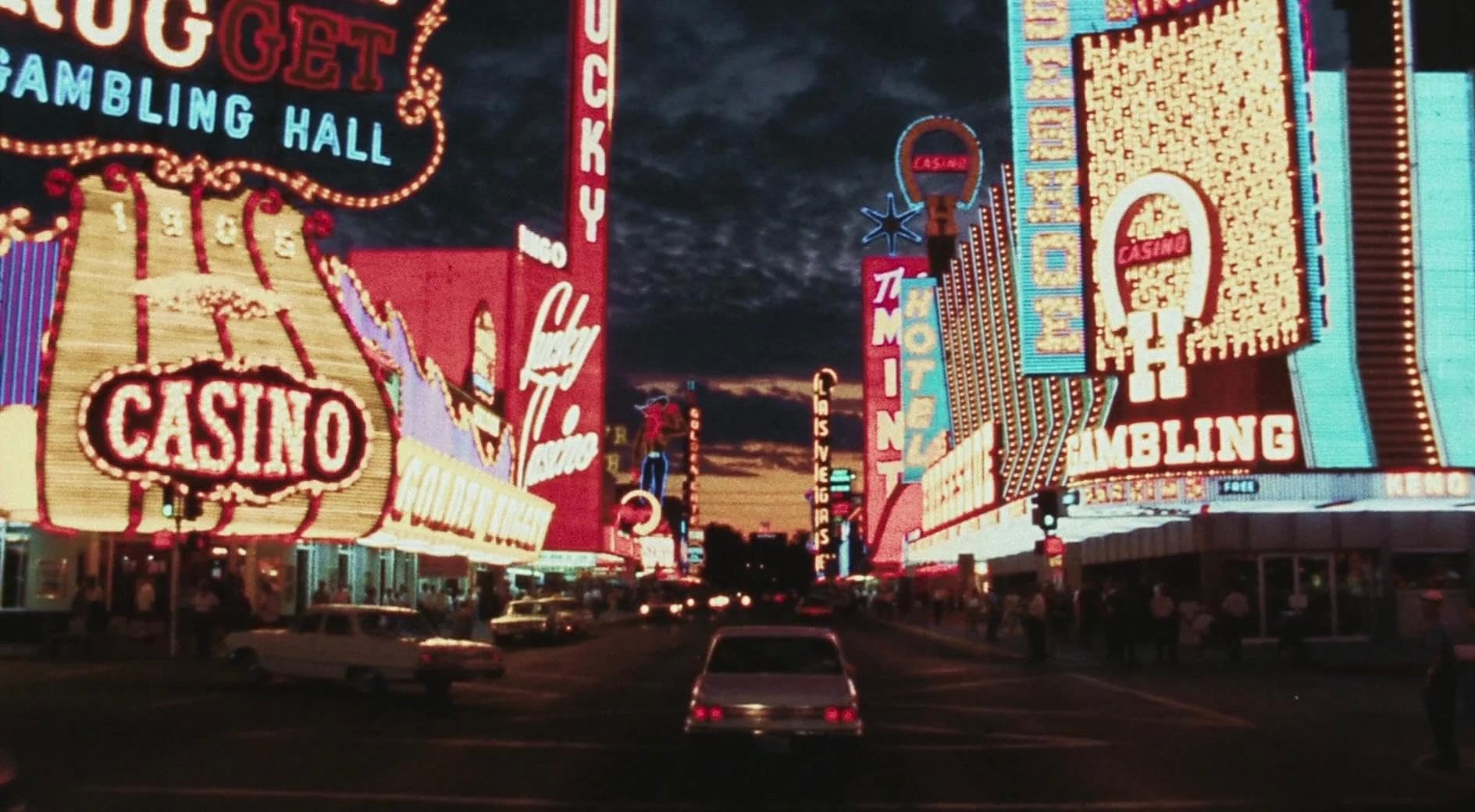Priscilla: A Movie Review
Sofia Coppola puts Priscilla Presley’s story on the big screen with masterful honesty, intrigue, and thoughtfulness

Sofia Coppola’s biopic of Priscilla Presley is a masterclass in “show, don’t tell.”
Coppola has held a distinct and impressive presence in cinema for decades, though somehow still feels like one of the industry’s dark horses, likely to surprise audiences. She has the demeanor of a visual artist who follows her own private and personal creative path, unconcerned with rising to the top of Hollywood.
Breaking box office records is not her goal, but she has the perfect skillset to tell stories with meaning and power in a relaxed, authentic, and artistically surefooted way. She also consistently attracts some of the very best actors around. Her stories threaten to capture the interest of audiences unexpectedly, in ways that don’t conform to the latest formula for box office success, and that directors who put commercial interests first simply can’t.
That’s what she has done with Priscilla, taking events from Priscilla Presley’s 1985 autobiography, Elvis and Me (which covers her life from young teenager into her early twenties, the “Elvis” years). The story is put on the big screen with intrigue, capturing interest while illuminating dimly lit corners of a well-told story to give us a completely fresh and new angle.

To do this she cuts through the mythos, Elvis as a unique brand of Americana birthed out of the 1950s, and makes the man and culture surrounding him distinctly secondary subjects — devices through which the personal story of Priscilla can be told, gracefully and honestly. Priscilla is kept center frame in the world of Elvis, Graceland, the Memphis Mafia, Colonel Parker, fame, et al, which becomes the backdrop; shapes of contrast and reference to show the environment around her. We briefly hear Elvis sing one of his songs on the piano to impress Priscilla on their first encounter (who swoons, as a fourteen year-old Elvis fan would), and see him perform on stage from behind in a seconds-long montage that uses music from another artist on the soundtrack.
Coppola executes this ambitious narrative reframing to terrific effect. It positions the viewer with Priscilla’s life experiences, but also lends the biopic a fresh and engaging energy from its opening moments. It’s quickly obvious, “okay, this is actually a story that hasn’t been put on the stage before.”
We see Priscilla, as a fourteen year-old high school student, recruited to meet a twenty-four year-old Elvis by an aquaintance of his dressed in military uniform. She is roped into a world all-but-impossible for a young teenager, who like most of her peers idolises the star (towards the end of his initial peak of fame), to refuse. Her parents fret about the dangers of the adult world she is being suddenly welcomed into at an obviously inappropriate age, weighing them up against the dangers of forbidding her to enter that world, and the inevitable bitterness and resentment that could be expected to cause. We can see it’s basically an impossible offer for her to say no to.
Soon things become intimate in a romantic and sexual way, even if sex isn’t involved until some years later. Elvis is handing her drugs from his personal supply — to keep her awake, to help her sleep, and recreationally —, and playing emotional games as she is ushered and incorporated into a position within the seductive world of fame, wealth, glamour, and dreams that surrounds them. It all feels quite manipulative, with clear overtones of grooming behaviour and, well, sexual predation. The opening third of the story is likely to make you grimace a few times, but it is showing her story the way it was in a straightforward way, and builds trust with the viewer quickly.
Once Priscilla is embedded into that world and over the years that follow, she is frequently ignored, neglected, cheated on, and manipulated into serving the role carved out for her in the way she is expected to. She lives in a house Elvis ocasionally comes back to and is told to “keep the home fires burning” there, while he is away shooting movies, and the newspapers are full of rumours of flings between him and some of the actors he stars with.

Yet, the movie does not deny that Priscilla loved Elvis, or that he loved her. It’s not a reductionist telling, and doesn’t actually feel like an attempt to villanise Elvis. Part of what it shows is the toxic power dynamics at play in the world they are both in, and the movie doesn’t deny Elvis is under extreme cultural pressures of his own — even if he is getting what looks like greater freedoms in many ways. It tells Priscilla’s story with a simple and unbiased honesty, in order to show her perspective without compromise. It gives the viewer space to form their own judgement — a directorial neutrality that lends the story a lot of power, and makes it thought-provoking.
Cailee Spaeny turns in a superb performance as Priscilla, basically tracking the trajectory from teenager ill-equipped to deal with the world she is beckoned into, through a period of accelarated personality development as she learns how to best defend and protect herself within that world, claim her own existence within it, and finally assert her basic rights as forcefully as she needs to.
Attacking Elvis never feels like an intent, or the point. In fact, it sounds like Coppola’s script toned down some details of events from Priscilla’s autobiography in order to achieve the focus and tone she wanted to present it to contemporary audiences. Elvis is treated more than fairly, and with sensitivity to him as a person in a position of extreme cultural pressures of his own. Priscilla Presley has spoken warmly of the movie, while Lisa Marie Presley opposed it while in pre-production, a few months before her tragic death in 2023. Lisa Marie based her opposition on having read the script, but not having seen the movie itself — an important distinction. A lot of the thoughtfulness and care in how the story is told comes from both directorial choices and the nuance of performance.

Priscilla is also extraordinarily good as a form of cinematic reply to Baz Luhrmann's Elvis (2022) — a movie I enjoyed and thought had good things of its own to say, focused around the nature of Colonel Parker and the toxic dynamic between him and Elvis. This story shows the toxic dynamics in Priscilla’s life, from Elvis but also in a larger sense, from the same culture that surrounded him.
For Sofia Coppola to pick this as her next project was a stroke of genius. She is the perfect director for it, and it was a perfect time for it to be released after Luhrmann’s movie. It’s not so much a reply to Luhrmann’s depiction on any personal level, but a movie that works perfectly as a companion movie. It feels made to exist alongside it, as a missing piece and additional angle showing a side of the story that should be included as part of the same conversation. Priscilla outdoes Luhrman’s film, which was very good. This is superb.
Movies like Priscilla and directors like Sofia Coppola show that cinema is as alive as ever, for those paying attention to the stories out there that don’t aim to break box office records and pile the CGI up high. And when all is said and done, Sofia could end up with a filmography that outdoes Francis Ford in important ways. An awesome thought for fans of cinema, new and old.

James Lanternman writes movie reviews, essays, and moonlit thoughts. You can reach him at [email protected].
Previously… Robot Dreams: A Movie Review
